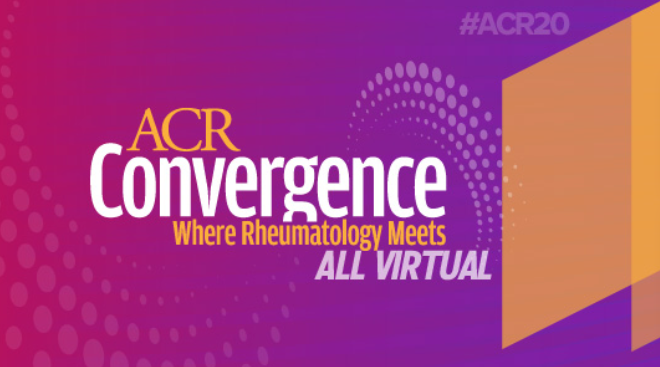Lupus Foundation of America to Present Findings on Self-Management Resource and Key Global Recommendations Addressing Major Challenges in Lupus at American College of Rheumatology Annual Meeting

The Lupus Foundation of America (LFA) will be presenting on the feasibility and acceptability of their new self-management resource, Take Charge, and its study on global recommendations to address major challenges in lupus as part of its Addressing Lupus Pillars for Health Advancement (ALPHA) Project, at the American College of Rheumatology’s Convergence annual meeting, taking place November 5-9.
The first abstract being presented, The Addressing Lupus Pillars for Health Advancement (ALPHA) Project: Establishing Consensus and Prioritization of Global Community Recommendations to Address Major Challenges in Lupus Diagnosis, Care, Treatment and Research, outlines how the LFA and ALPHA Global Advisory Committee (GAC) developed a roadmap of specific recommendations to address barriers previously identified through the global consensus project. For example, the top recommendation to improve lupus drug development is to simplify and standardize outcome measures in clinical trials, including steroid-sparing as an outcome.
An in-person stakeholder meeting of the ALPHA GAC was held to gather consensus recommendations across drug development, clinical care and access to care. During the meeting, breakout groups identified actionable solutions to achieve ‘success’ per pillar, which were then discussed as a full group and followed by GAC members voting on one top solution per pillar. Two rounds of post-meeting scoring were also used to assess the overall achievability of each recommendation based on its feasibility and impact to improve the quality of life of adults and children with lupus.
“Tackling long-standing challenges in lupus requires us to work together across the globe and agree about how to move forward,” shared Susan Manzi, MD, MPH, ALPHA GAC Member, Board Chair and Medical Director for the Lupus Foundation of America and Chair, Allegheny Health Network Medicine Institute and Director, Lupus Center of Excellence. “The ALPHA Global Advisory Committee went about developing recommendations in a sound, methodical way, involving the perspectives of different stakeholders from around the world, from researchers, to corporate representatives, to people with lupus, which is critical if we want to make an impact.”
In the second LFA abstract being presented, Implementation, Feasibility and Acceptability of Take Charge, an Email Series to Increase Knowledge of Lupus Self-Management Skills, engagement and feedback of the first of its kind email series in lupus is assessed. Take Charge is an email series that helps people with lupus learn and try new self-management skills. The study found that the series was particularly helpful for newly diagnosed people with lupus, who were significantly more likely to report trying several self-management skills presented in the series compared to those who have been living with lupus longer.
Eight educational email messages were distributed weekly to participants through an online communications platform, Luminate Online. The emails received an average open rate of 44.5% and a 11.8% click-through rate to provided resources, which are much higher engagement percentages compared to industry standards. Additionally, of the participants who completed the post-series survey (n=494), top reported skills tried included preparing questions for medical appointments (55%), identifying and tracking symptoms (48%), and developing a coping strategy (39%). This educational program was supported by the Centers for Disease Control and Prevention under Cooperative Agreement Number NU58DP006139.
“We were pleased to see that an email series was a feasible and engaging approach, and that Take Charge is a helpful tool for people with lupus to learn about self-management skills. It was also encouraging to see that the majority of Take Charge participants reported taking the next step of applying the presented skills into their daily lives,” shared Karin Tse, MPH, senior research manager, health outcomes, Lupus Foundation of America. “We are excited to continue providing, improving and evaluating the series.”
Additionally, during the ACR meeting, several Lupus Foundation of America funded grantees and partners of the LFA will also be presenting on studies, including the Childhood Arthritis and Rheumatology Research Alliance (CARRA) who will be sharing research funded by the LFA on priorities in childhood onset lupus as well as principles of pediatric lupus nephritis. Eli Lilly will be presenting results from a collaborative study with the LFA on its SLE-UPDATE (Understanding Preferences, Disease Activity and Treatment Expectations) survey.



